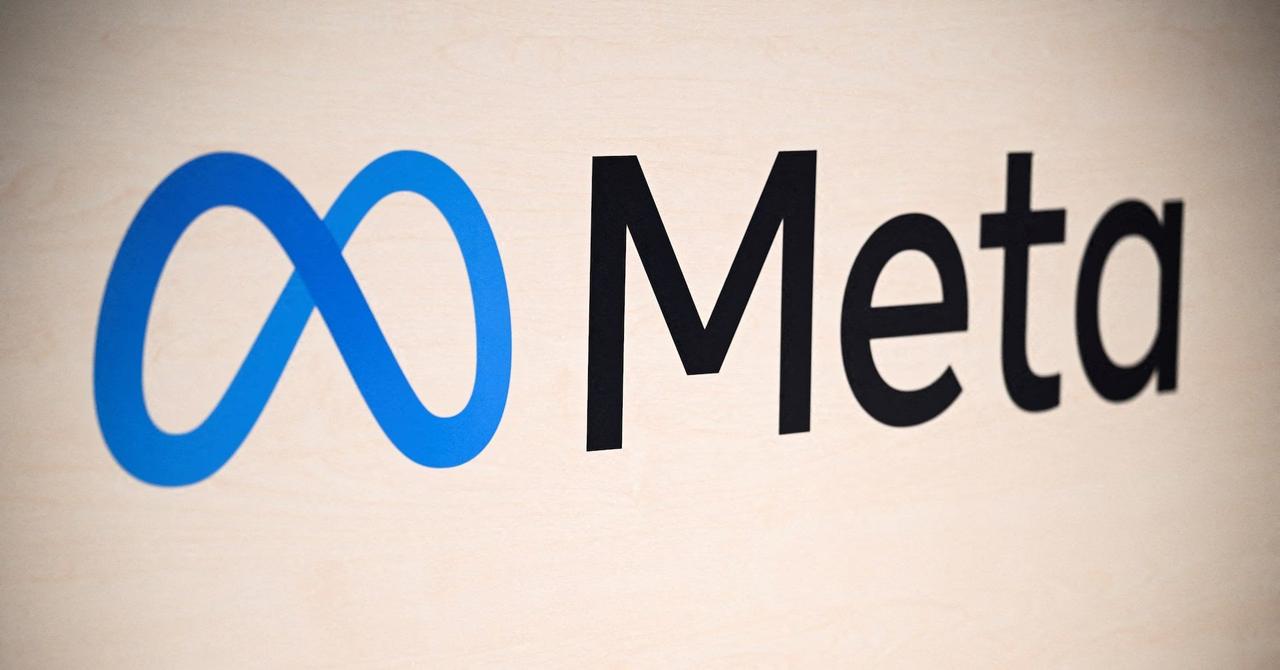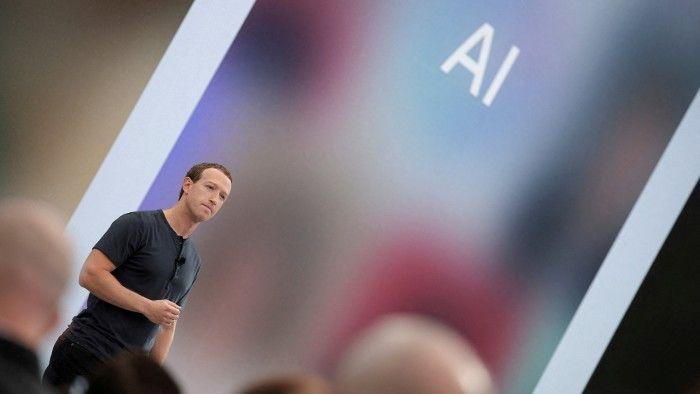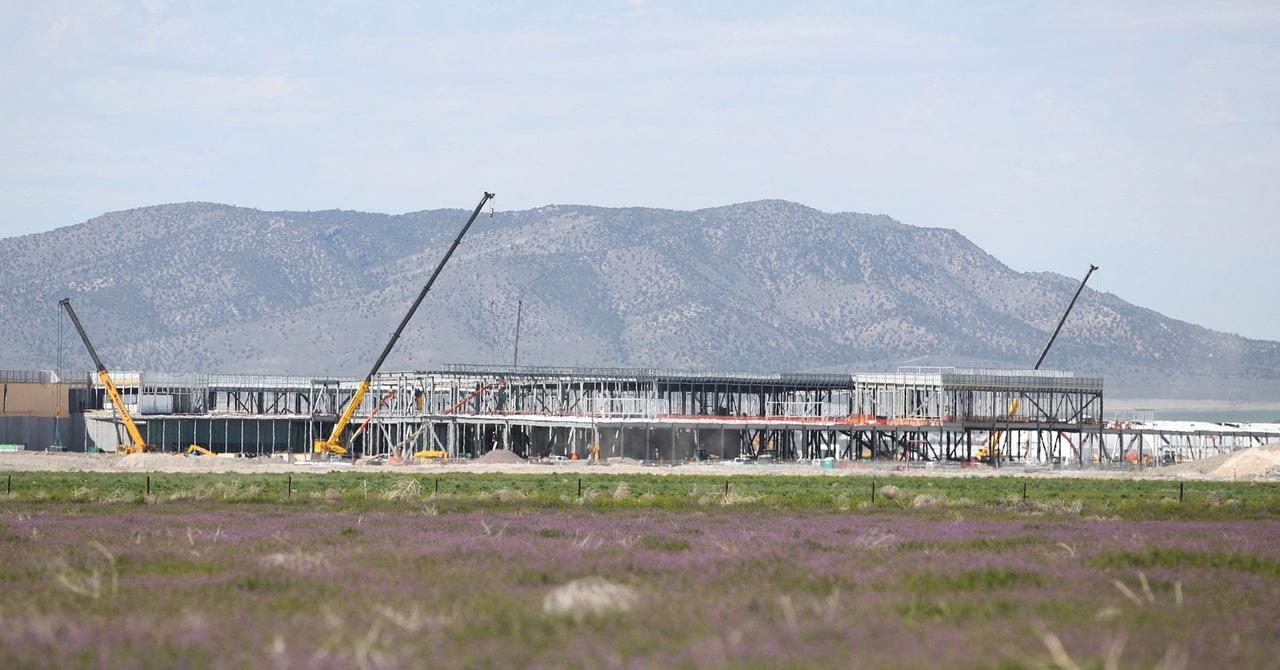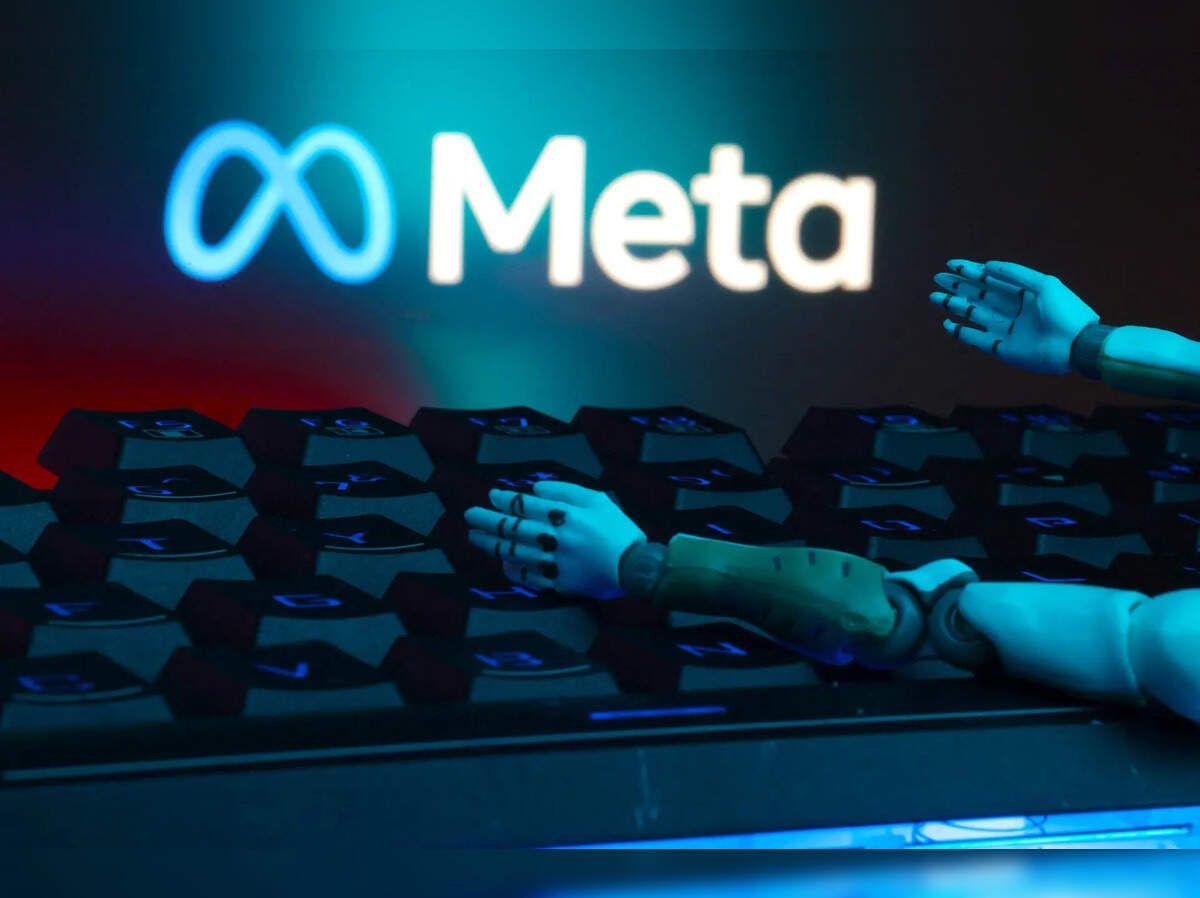Meta Seeks $29 Billion from Private Capital Firms to Fund AI Data Centers
5 Sources
5 Sources
[1]
Meta seeks $29bn from private credit giants to fund AI data centres
Meta is looking to raise $29bn to fund its all-in push into artificial intelligence, turning to private capital firms to finance its build out of data centres in the US. Talks between the Instagram-owner and private credit investors have advanced, with several large players including Apollo Global Management, KKR, Brookfield, Carlyle and Pimco involved in the discussions, according to people familiar with the matter. Meta is hoping to raise $3bn of equity from them and then a further $26bn of debt. But it is debating how to structure the massive debt raising, as it considers options for what will be one of the largest private fundraisings of its kind. The company could also look to raise more capital, one person added. In partnering with big money managers, Meta and its biggest rivals are splitting the risks and costs of massive investments as they compete to secure computing capacity to power their AI models. Meta was working with its advisers at Morgan Stanley to arrange the financing, and it was considering ways that could make the debt more easily tradeable once it was issued, the people added. That is one factor potential investors who have studied the transaction have raised, given its sheer size. Meta, Morgan Stanley, Apollo, Brookfield, Carlyle, KKR and Pimco all declined to comment. Meta chief executive Mark Zuckerberg has been sharply increasing his efforts to become the "AI leader" as the company's development has lagged rivals this year. Its Llama 4 large language model has not performed as well as expected and the release of its flagship "Behemoth" model has been delayed. Earlier this month, Meta announced a $15bn investment in data labelling start-up ScaleAI. As part of the deal, the social media group is also hiring Scale's chief executive Alexandr Wang to a new "superintelligence" team, tasked with developing artificial general intelligence. Zuckerberg has been personally trying to poach other AI talent, with three top OpenAI researchers announcing this week that they were joining the company. OpenAI chief executive Sam Altman said on a podcast that Zuckerberg had been offering his engineers $100mn sign-on bonuses. At its earnings in May, Meta raised its full-year capital expenditure forecast by as much as 10 per cent to between $64bn and $72bn, citing "additional data centre investments" to support its AI push as well as an "increase in the expected cost of infrastructure hardware". This month, it announced that it had agreed to buy the output of a nuclear plant in Illinois for two decades to power its AI efforts, marking its first nuclear deal, as well as four deals with clean energy group Invenergy. Private capital firms have also stepped up to finance data centres for OpenAI, with Blue Owl agreeing to help fund a $15bn joint venture to construct a development in Texas. OpenAI is also working with investors including SoftBank and Oracle on a $500bn data centre venture. Blue-chip companies such as Meta have been increasingly relying on private investment firms for firepower, as they look to avoid straining their own balance sheets to fund large-scale capital projects. Apollo last year struck an $11bn deal with Intel, where it agreed to finance the chipmaker's semiconductor fabrication plants in Ireland in exchange for a stake in a unit and guaranteed cash flows from the business. Private investment groups have increasingly been pitching investment grade corporations on alternative financings to traditional corporate bonds or loans. Such deals, including the Intel transaction, are often structured as special purpose vehicles or joint ventures, where the asset managers take a large minority ownership share in the vehicle. The company contributes assets to the venture in exchange for the capital -- either in debt or equity -- that private investment firms provide. The deals are then highly structured, with income and cash flows from the projects divided between the asset manager and company. The companies benefit from the financings in a critical way: the deals are structured to keep the debt-like fundraisings off their balance sheets, avoiding an impact to their leverage and ratings. Asset managers such as Apollo and Blackstone now own or have tie-ups with major insurers and annuity providers, which need high-quality investments that regulators will approve of. To generate higher returns than government or corporate bonds offer, they have turned to these bespoke financings.
[2]
Meta seeks $29 billion from private capital firms for AI data centers, FT reports
June 27 (Reuters) - Meta Platforms (META.O), opens new tab is seeking to raise $29 billion from private capital firms to build artificial intelligence data centers, the Financial Times reported on Friday. The Facebook-parent has advanced discussions with private credit investors including Apollo Global Management (APO.N), opens new tab, KKR (KKR.N), opens new tab, Brookfield (BAM.TO), opens new tab, , Carlyle and Pimco, the report said, citing people familiar with the matter. Meta did not immediately respond to a Reuters request for comment. Reporting by Harshita Mary Varghese in Bengaluru; Editing by Maju Samuel Our Standards: The Thomson Reuters Trust Principles., opens new tab Suggested Topics:Artificial Intelligence
[3]
Report: Meta seeking to raise $29B for AI data center construction - SiliconANGLE
Report: Meta seeking to raise $29B for AI data center construction Meta Platforms Inc. is reportedly seeking $29 billion from an investor consortium to finance the construction of new data centers. Discussions about the deal are in an advanced stage, sources told the Financial Times today. However, it's believed that some key transaction terms could still change. Notably, Meta may decide to raise more than $29 billion, which is in line with a February report from Bloomberg. The paper cited people familiar with the matter as saying that Apollo could lead a $35 billion financing package for Meta. Alongside Apollo, the consortium from which the Facebook parent hopes to raise the capital reportedly includes KKR, Brookfield, Carlyle and PIMCO. Meta is currently seeking $3 billion in equity funding and $26 billion worth of debt. The data centers that the company plans to build using the funds would be used to power artificial intelligence workloads. In January, Meta announced plans to spend up to $65 billion on AI infrastructure by year's end. Other AI data center builders already rely on debt to finance construction projects. CoreWeave Inc., which operates an AI-optimized public cloud, had about $8 billion of debt on its balance sheet last December. The company has used the graphics cards in its data centers as collateral for some loans. Debt financing is reportedly also supporting OpenAI's AI roadmap. Crusoe Energy Systems LLC, a Denver-based startup, and investment firm Blue Owl Capital have secured $7 billion worth of loans to build a data center complex in Texas. Oracle Corp. will reportedly use the site to host $40 billion worth of Nvidia Corp. chips for OpenAI. Meta is currently building a multibillion-dollar data center complex of its own in Louisiana. It's possible some of the new financing the company is reportedly seeking will go towards that project. According to Meta, the four million square foot site will host up to nine facilities once construction is complete. Those data centers are expected to require more than 2 gigawatts of power. One gigawatt corresponds to the electricity consumption of about 750,000 homes. Entergy Corp., a Fortune 500 energy company, will reportedly build 3 cycle power plants to support the data center campus. The project will also encompass four new substations and 100 miles of power transmission lines. A few hours before the Financial Times detailed Meta's fundraising push, Reuters reported that U.S. President Donald Trump plans to sign a set of AI-focused executive orders. They're expected to make it easier for AI data center builders to connect new power-generation equipment to the grid. Additionally, the executive orders will reportedly seek to streamline the permitting process for new data centers.
[4]
Meta seeks $29 billion from private capital firms for AI data centres: Financial Times - The Economic Times
Meta Platforms is seeking to raise $29 billion from private capital firms to build artificial intelligence data centres in the U.S., the Financial Times reported on Friday. The Facebook-parent has advanced discussions with private credit investors including Apollo Global Management, KKR , Brookfield , Carlyle and PIMCO, the report said, citing people familiar with the matter. Meta is looking to raise $3 billion in equity and $26 billion in debt, the report said, adding that the company is debating how to structure the debt raising and may also seek to raise more capital. Such a fundraising comes at a time when Meta has doubled down its commitment to artificial intelligence, including a $14.8 billion investment in startup Scale AI. Meta CEO Mark Zuckerberg had said in January the company would spend as much as $65 billion this year to expand its AI infrastructure, seeking to strengthen its position against competitors OpenAI and Google in the race to lead the AI technology landscape. Meta and Carlyle declined to comment, while Apollo Global, KKR, Brookfield and PIMCO did not immediately respond to Reuters' requests for comment. Meta was working with its advisers at Morgan Stanley to arrange the financing, and it was considering ways that could make the debt more easily tradeable once it was issued, the FT report said. Major tech companies are investing heavily to secure the vast computing power needed to run AI models, fueling demand for specialized data centres that link thousands of chips into high-performance clusters. Microsoft has planned a capital expenditure of $80 billion in fiscal 2025, with most of it aimed at expanding data centres to ease capacity bottlenecks for AI services. Bloomberg News reported in February that Apollo Global Management is in talks to lead a roughly $35 billion financing package for Meta to help develop data centres in the United States.
[5]
Meta wants to raise 29 billion dollars for AI data centers
Talks are ongoing with investors such as Apollo Global Management, KKR, Brookfield, and Carlyle. Meta, the parent company of , is looking for substantial external funding to realize its ambitions in the field of artificial intelligence. The tech giant wants to raise a total of (€24.7 billion), earmarked for the construction of new data centers. According to the , which cites sources close to the matter, Meta is in advanced talks with financial heavyweights such as , KKR, Brookfield, and Carlyle. The investment round is part of a broader strategic move by CEO . Back in January, he announced that Meta intends to spend up to (€55.4 billion) this year on building out its AI infrastructure. With this, the company aims to strengthen its position in an increasingly competitive landscape, where players like OpenAI and are claiming a dominant role.
Share
Share
Copy Link
Meta Platforms is in advanced talks with private capital firms to raise $29 billion for building AI data centers, signaling a major push in the AI race.
Meta's Ambitious AI Funding Initiative
Meta Platforms, the parent company of Facebook and Instagram, is making a bold move in the artificial intelligence (AI) arena. The tech giant is seeking to raise a staggering $29 billion from private capital firms to fund the construction of AI data centers in the United States
1
2
3
. This massive fundraising effort underscores Meta's commitment to becoming a leader in AI technology and infrastructure.The Financing Structure

Source: Reuters
According to reports, Meta is looking to raise $3 billion in equity and $26 billion in debt
1
4
. The company is in advanced discussions with several prominent private credit investors, including Apollo Global Management, KKR, Brookfield, Carlyle, and PIMCO1
2
. Meta is working with advisers at Morgan Stanley to arrange the financing and is considering ways to make the debt more easily tradeable once issued1
.Strategic Importance and Competition
This fundraising initiative is part of Meta's broader strategy to strengthen its position in the highly competitive AI landscape. CEO Mark Zuckerberg has expressed his ambition for Meta to become the "AI leader," and the company has been increasing its efforts in this direction
1
5
. Earlier this year, Zuckerberg announced plans to spend up to $65 billion on expanding Meta's AI infrastructure4
5
.AI Talent Acquisition and Investments

Source: FT
Meta's push into AI extends beyond infrastructure investments. The company recently announced a $15 billion investment in data labeling start-up ScaleAI and has been actively recruiting top AI talent
1
. Zuckerberg has reportedly been offering significant sign-on bonuses to attract engineers from competitors like OpenAI1
.Industry Trends and Implications
Meta's massive fundraising effort reflects a broader trend in the tech industry, where companies are increasingly turning to private capital firms to finance large-scale projects
1
3
. This approach allows companies like Meta to avoid straining their own balance sheets while securing the necessary resources for ambitious initiatives.Related Stories
Regulatory and Environmental Considerations

Source: SiliconANGLE
The push for AI infrastructure expansion has also caught the attention of policymakers. Reports suggest that U.S. President Donald Trump plans to sign executive orders aimed at facilitating the construction of AI data centers, including measures to streamline permitting processes and grid connections
3
. Additionally, Meta has been exploring sustainable energy solutions to power its AI efforts, including a recent deal to purchase output from a nuclear plant in Illinois1
.Conclusion
Meta's $29 billion fundraising effort for AI data centers represents a significant milestone in the company's AI strategy. As the race for AI dominance intensifies, this move positions Meta to compete more effectively with rivals like OpenAI and Google. The success of this initiative could have far-reaching implications for the future of AI development and the tech industry as a whole.
References
Summarized by
Navi
[5]
Related Stories
Meta's Ambitious $200 Billion AI Data Center Plan: Fact or Fiction?
26 Feb 2025•Technology

Meta's $2 Billion Asset Sale Signals Shift in AI Infrastructure Funding Strategy
01 Aug 2025•Business and Economy

Meta Secures Massive $27 Billion Deal for AI Data Center Project in Louisiana
17 Oct 2025•Business and Economy

Recent Highlights
1
ByteDance Faces Hollywood Backlash After Seedance 2.0 Creates Unauthorized Celebrity Deepfakes
Technology

2
Microsoft AI chief predicts artificial intelligence will automate most white-collar jobs in 18 months
Business and Economy

3
Google reports state-sponsored hackers exploit Gemini AI across all stages of cyberattacks
Technology





